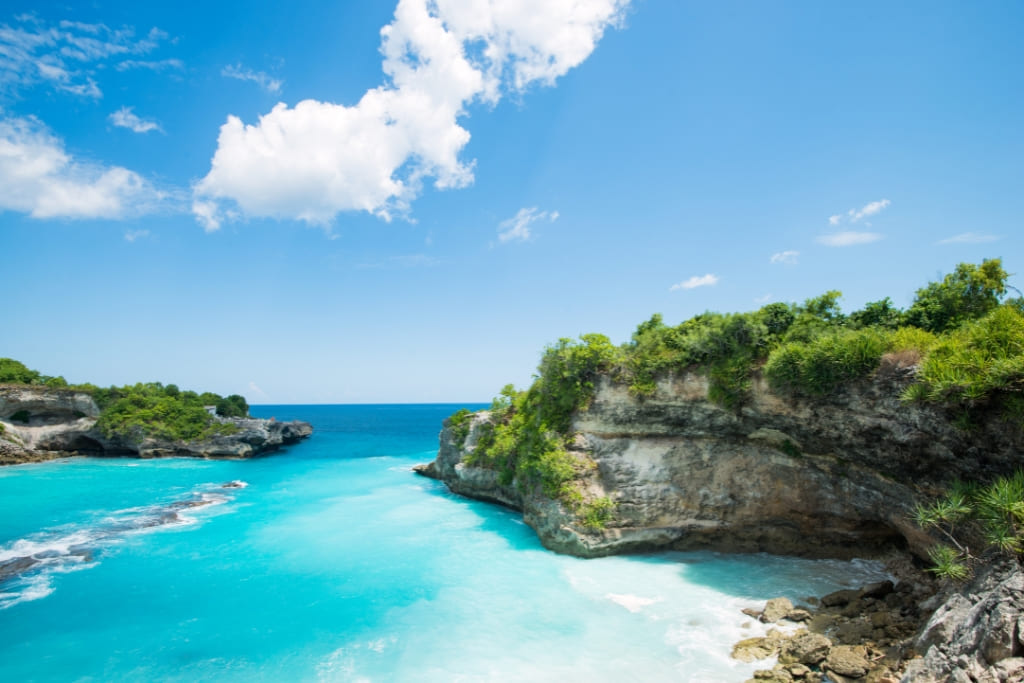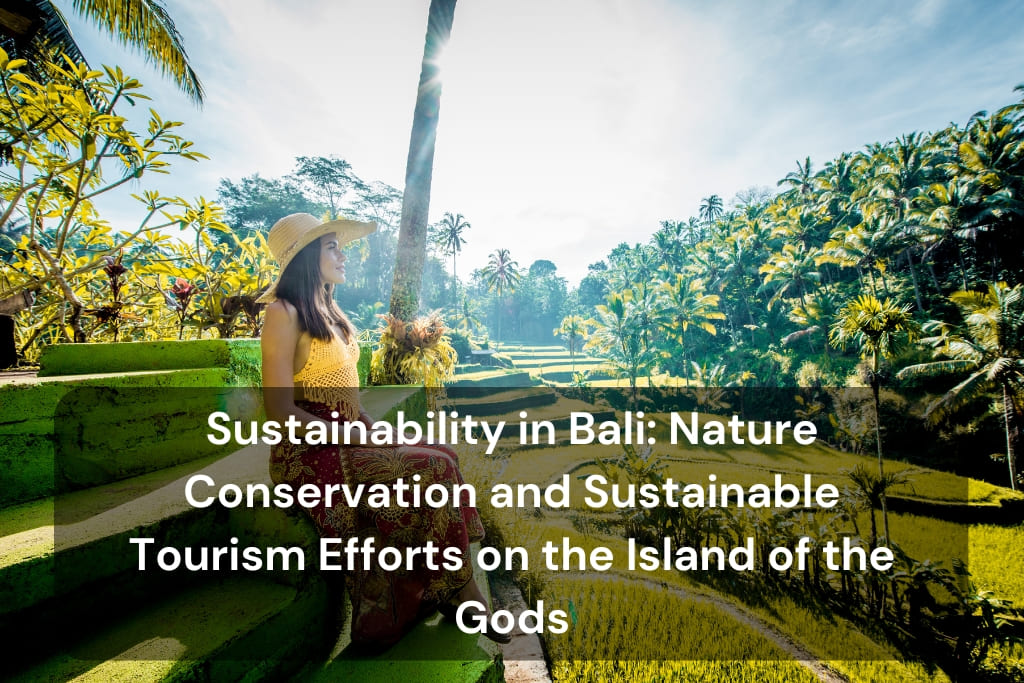Bali, often called the Island of Gods, is a world-class tourism destination renowned for its natural beauty and rich cultural heritage. However, behind its charm, Bali faces significant challenges in balancing tourism demands with environmental preservation. To address these challenges, Bali is now increasingly committed to sustainability, encompassing both nature conservation and sustainable tourism.
Environmental Challenges in Bali
As tourism boomed in Bali, so did its environmental challenges. Plastic pollution became a glaring issue, especially in coastal areas. Each year, thousands of tons of waste—largely generated by tourism activities—end up contaminating the island’s beaches and oceans. Reports reveal that Indonesia is among the world’s largest contributors to plastic pollution, and Bali reflects that harsh reality.

Another pressing issue is the degradation of marine ecosystems. The once-vibrant coral reefs that encircle Bali’s shores have suffered significantly due to pollution, destructive tourism practices, and excessive coastal development. Activities such as snorkeling and diving, often conducted without adequate regulations, contribute to the stress on these fragile underwater habitats.
Bali’s water resources are also under strain. The island’s growing demand for clean water—primarily fueled by tourism—has led to overexploitation of groundwater. This unsustainable usage has caused saltwater intrusion and threatens the future availability of freshwater for local communities and agriculture.
Nature Conservation Initiatives in Bali
- Plastic-Free Campaigns
In 2019, the Bali government took a firm step by banning single-use plastics such as bags, straws, and styrofoam. This policy aims to reduce plastic pollution that contaminates both the land and sea in Bali. - Coral Reef Restoration
Many local communities and organizations, such as Reef Check Indonesia, are actively involved in restoring coral reefs across Bali. For example, in Pemuteran, locals and environmental activists have planted artificial coral reefs to revive damaged marine ecosystems. - Mangrove Forest Rehabilitation
Mangrove forests in Bali play a vital role in protecting the coastline from erosion and serving as habitats for various species. Rehabilitation efforts are being conducted in areas like the Ngurah Rai Grand Forest Park and Suwung to restore degraded ecosystems.

Sustainable Tourism in Bali
- Eco-Friendly Hotels
Many hotels and villas in Bali have adopted eco-friendly practices, such as utilizing renewable energy, implementing waste management systems, and focusing on energy-efficient building designs. Examples include Eco Bali Retreats and Green School, which advocate for sustainability. - Educational Tourism
Tourists can directly learn about conservation and sustainability through programs such as zero-waste workshops, educational tours in mangrove forests, and courses on local culture that support environmental preservation. - Supporting Local Products
Traditional markets and artisan communities in Bali integrate tourism with the local economy. Products like handwoven fabrics, bamboo crafts, and organic foods encourage tourists to shop with a positive social impact.
Local Community Participation in Sustainability
- Local Customs and Traditions
The Balinese people’s lifestyles are fundamentally based on the Tri Hita Karana philosophy, which promotes harmony between humans, nature, and God. This value inspires many sustainability programs at the local level. - Community Movements
Communities such as Bali WISE and Bye Bye Plastic Bags actively involve locals, especially the youth, in reducing plastic waste and promoting environmentally-friendly lifestyles.
The Role of Tourists in Supporting Sustainability
Tourists also play a significant role in sustaining Bali. Simple actions they can take include:
- Reducing single-use plastic consumption.
- Choosing accommodations and services certified as eco-friendly.
- Supporting the local economy by purchasing traditional products.
- Following tourism guidelines that prioritize environmental preservation.

Conclusion
Sustainability in Bali is not only the responsibility of the government and local communities but also involves tourists, organizations, and the private sector. Through conservation initiatives and the development of sustainable tourism, Bali has great potential to remain a paradise destination while preserving its rich environment and culture.
Through strong collaboration and commitment, Bali can serve as a global model for balanced and environmentally respectful tourism. The Island of Gods is not just for today but also for the generations to come.





